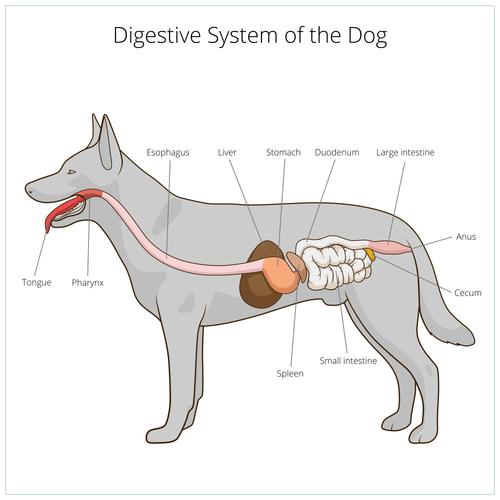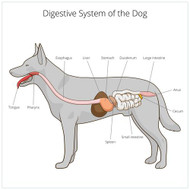The Benefits of Pre- and Probiotics
2021 Jun 15th

Has your dog taken antibiotics and had diarrhea ever since? Does your pup have bad breath even though their teeth are clean? Does your pet seem oddly aggressive or down in the dumps? You may want to try giving them some pre- and probiotics!
I’m sure you have heard of them, but what exactly are they?
Probiotics
Probiotics are bacteria that inhabit the intestines of most animals. They help with a lot of things, including:
- Digestion
- Immune system
- Inflammation
- Preventing certain diseases such as colorectal cancer and IBD (Inflammatory Bowel Disease)
- Protects against harmful pathogens
- Synthesizing vitamin K and some B vitamins
- Produce hormones for metabolism and neurological functions
- Help absorb some nutrients, such as calcium, magnesium, and iron
- Produce polyphenols and short chain fatty acids (SCFAs)
As you can see, they do a lot of good in the body! These bacteria live in the gut and have a symbiotic relationship with other organisms, such as yeast and pathogenic bacteria. As long as you keep the good flora healthy then they can help defend against many bad bacteria, viruses, and even allergies. These gut bacteria play a large role in the immune system. An imbalance in the gut can cause indigestion which is a cause of bad breath. If you brush your dog’s teeth regularly and they still have bad breath, you may want to try giving them some probiotics. It was even shown in mice that low gut flora can produce poor mood and aggression. This is because probiotics produce important neurotransmitters that normally communicate with the brain.
You can give probiotics to your dog in a couple different ways. Probiotic supplements are available from health food stores, as well as pet-specific ones in pet stores. These come in capsules or powder and can be given on their food or in something they really like. Probiotic yogurt and kefir are also options but be careful if your dog is lactose intolerant as it can give them the runs if they can’t process the lactose. These probiotic options contain live organisms that colonize the gut to increase the number of good flora. The two most common probiotics are Lactobacillus and Bifidobacterium. Look for a supplement that contains several strains of these and in very high numbers (in the millions, or billions is even better). The more in there the better!
Prebiotics
Prebiotics are insoluble, indigestible fibres that acts as food for probiotics. Gut flora break down compounds in prebiotics into polyphenols as well as SCFAs which promote anti-inflammatory T-Cells of the immune system. Less inflammation means a decreased susceptibility to some chronic diseases. It is always a good idea to give your dog pre- and probiotics together, even if they are completely healthy. Without prebiotics, probiotics can be less effective and can eventually die off without the necessary food to help them grow in numbers. Good sources of prebiotics include apples, bananas, leafy greens, pumpkin, and burdock root.
What kills gut flora?
Many factors are involved in the loss of gut flora, including:
- Antibiotics
- Drugs such as steroids and NSAIDs
- Chemicals
- Vaccines
- Pesticides
- Stress
The biggest factor for being at risk of having a low amount of good gut bacteria is antibiotic use. Antibiotics rapidly kill gut flora. If you are giving your pet antibiotics, it is recommended to pair it with a good probiotic. However, do not give them at the same time; they should be given at different times of the day to try and help the gut bacteria recover. When probiotics are killed off the gut symbiosis gets unbalanced, letting pathogenic bacteria take over the entire intestinal environment. About 0.5-1% of our body weight accounts for intestinal bacteria. That may not sound like a lot, but in a large dog that is almost 1 lbs of bacteria!

